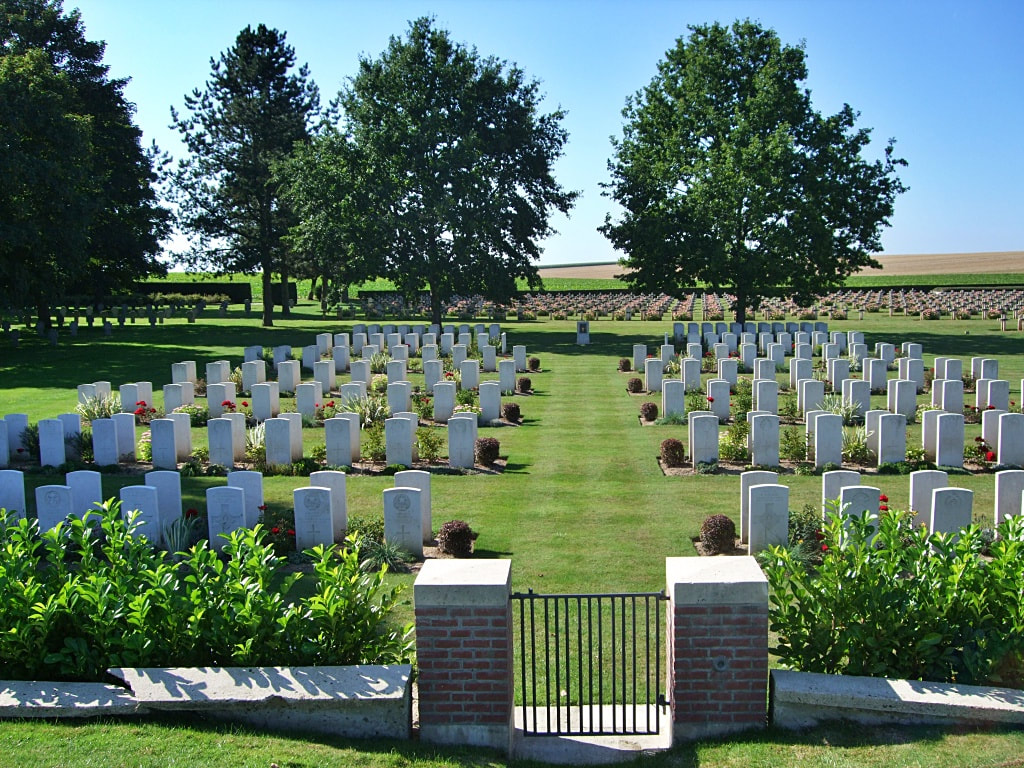 Remembrance Day (also known as Poppy Day owing to the tradition of wearing an artificial poppy) is a memorial day observed in Commonwealth member states since the end of the First World War. This day honours armed forces members who died in the line of duty.
Remembrance Day (also known as Poppy Day owing to the tradition of wearing an artificial poppy) is a memorial day observed in Commonwealth member states since the end of the First World War. This day honours armed forces members who died in the line of duty.
War grave in Northern France [WW1 Cemeteries]
The day is also marked by war remembrances in several other non-Commonwealth countries.
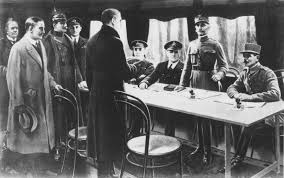 In most countries, Remembrance Day is observed on 11 November to recall the end of First World War hostilities. Hostilities ended "at the 11th hour of the 11th day of the 11th month" of 1918, in accordance with the Armistice signed by representatives of Germany and the Allied countries. The First World War formally ended with the signing of the Treaty of Versailles on 28 June 1919.
In most countries, Remembrance Day is observed on 11 November to recall the end of First World War hostilities. Hostilities ended "at the 11th hour of the 11th day of the 11th month" of 1918, in accordance with the Armistice signed by representatives of Germany and the Allied countries. The First World War formally ended with the signing of the Treaty of Versailles on 28 June 1919.
Signing the Armistice [Britannica]
The origins
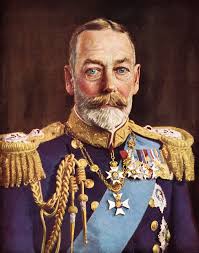 The initial Armistice Day was observed at Buckingham Palace, commencing with King George V hosting a "Banquet in Honour of the President of the French Republic" during the evening hours of 10 November 1919.
The initial Armistice Day was observed at Buckingham Palace, commencing with King George V hosting a "Banquet in Honour of the President of the French Republic" during the evening hours of 10 November 1919.
The first official Armistice Day was subsequently held on the grounds of Buckingham Palace the following morning.
During the Second World War, many countries changed the name of the holiday. Member states of the Commonwealth of Nations adopted Remembrance Day, while the US chose the name Veterans Day.
King George V [Discover Britain]
United Kingdom
In the United Kingdom, the main observance is Remembrance Sunday, held on the Sunday nearest to 11 November. There is a National Service of Remembrance in London, as well as other services and ceremonies in the regions.
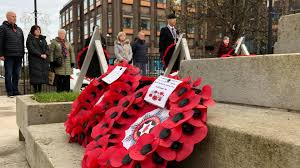 Typically, poppy wreaths are laid by representatives of the Crown, the armed forces, and local civic leaders, as well as by local organisations including ex-servicemen organisations, cadet forces, the Scouts. Guides, Boys' Brigade, St John Ambulance and the Salvation Army.
Typically, poppy wreaths are laid by representatives of the Crown, the armed forces, and local civic leaders, as well as by local organisations including ex-servicemen organisations, cadet forces, the Scouts. Guides, Boys' Brigade, St John Ambulance and the Salvation Army.
A two minutes' silence is also frequently incorporated into church services.
Poppy wreaths at the Cenotaph in London [BBC]
A personal note
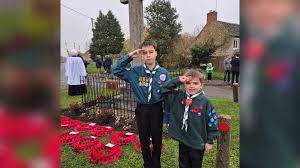 As a Scout Cub and later a Scout I was involved in Remembrance Day parades annually from a young age.
As a Scout Cub and later a Scout I was involved in Remembrance Day parades annually from a young age.
Now, 60-odd years later, this date has become significant for me once again what with devastating wars and conflicts taking place throughout the world.
[BBC]
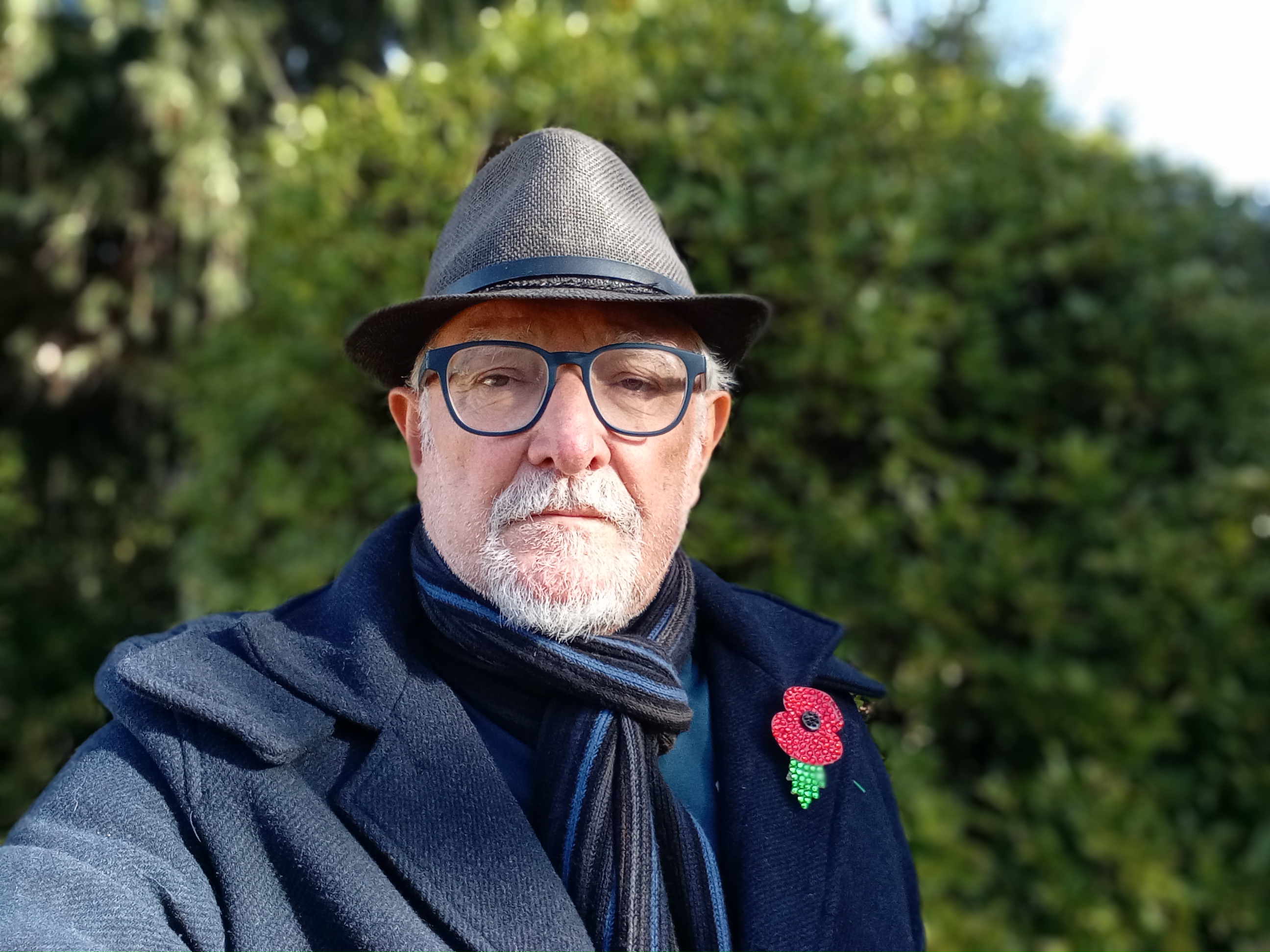 Despite living in Spain, which does not commemorate the two World Wars, the country not having been involved in either war (officially!), I managed to get hold of a poppy following an appeal on Facebook ("Thanks, Fran!").
Despite living in Spain, which does not commemorate the two World Wars, the country not having been involved in either war (officially!), I managed to get hold of a poppy following an appeal on Facebook ("Thanks, Fran!").
I shall wear my poppy with pride today.
Yours truly this morning [selfie]
© The History Man
Images:
Britannica, BBC, Discover Britain, Paul Whitelock, WW1 Cemeteries
Acknowledgements:
Paul Whitelock, The History Man, Wikipedia
Tags:
armed forces, armistice, Boys Brigade, Britannica, BBC, cadet force, Commonwealth, cub scout, Discover Britain, First World War, Paul Whitelock, poppy, Poppy Day, remembrance day, St John Ambulance, Salvation Army, scout, scout cub, two minutes' silence, Wikipedia, WW1 Cemeteries